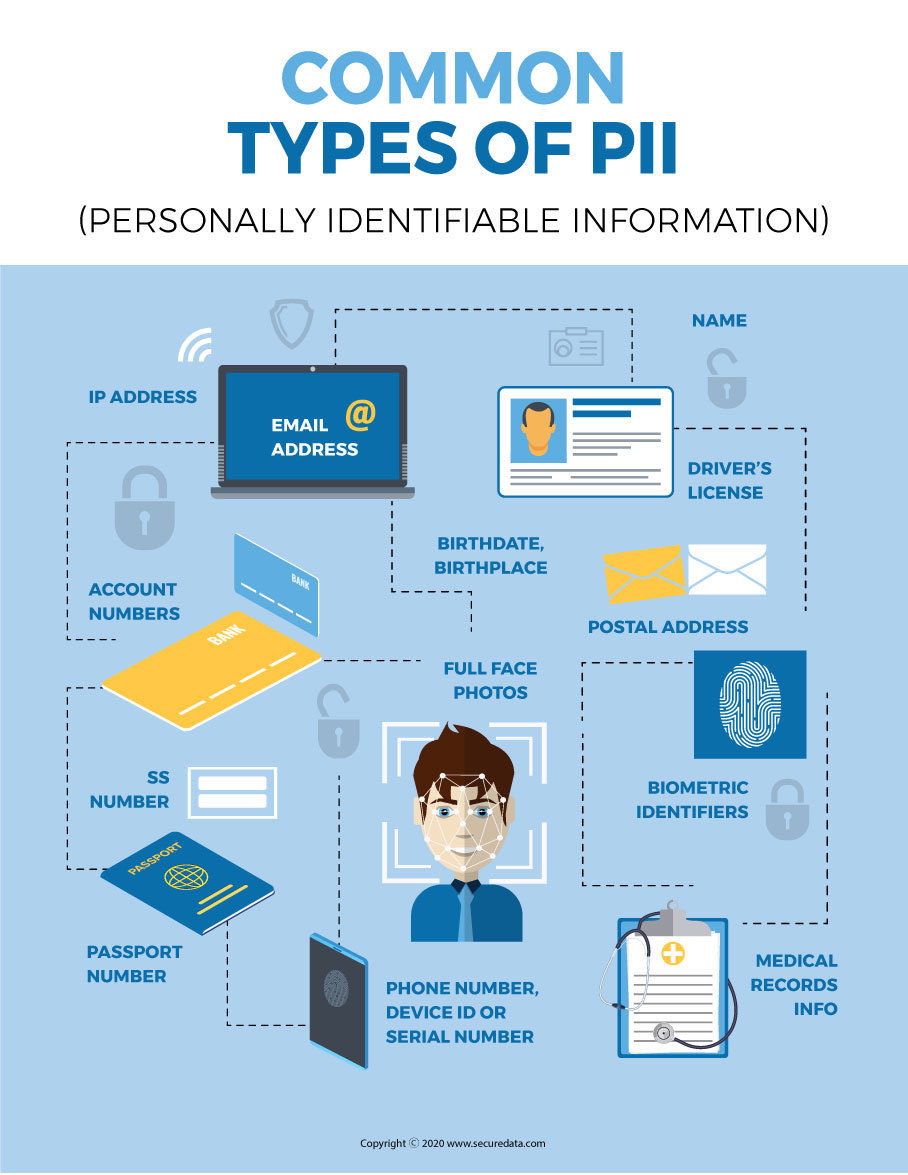Personally Identifiable Data (PII) is data that can be used to identify, contact, or locate an individual. It is any data that could be used directly or indirectly to identify an individual, either alone or in combination with other pieces of information. PII can be collected from direct sources, such as a person’s name, address, Social Security number, or driver’s license, or indirect sources, such as a person’s gender, age, or contact preferences.
PII is typically protected by laws and regulations both in the United States and abroad. Companies are increasingly obligated to protect the privacy of this data, and the use of encryption and secure storage methods for PII is encouraged.
PII is used by many organizations for a variety of purposes, including but not limited to customer service, marketing, billing, analytics, risk management, compliance, and fraud prevention. It is also used to generate user profiles and conduct targeted consumer research.
Data security is important when it comes to PII. Companies must make sure that PII is securely stored, processed, and transmitted in order to prevent unauthorized access. This includes physical measures such as locks on doors, and digital measures such as data encryption.
The prevalence of PII has also led to a rise in identity theft, and people should take steps to protect their personal information from falling into the wrong hands. This includes using strong passwords, frequently changing passwords, avoiding public Wi-Fi, using two-factor authentication, and activating data breach notifications.





